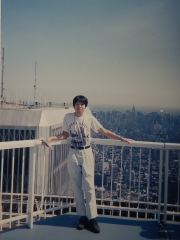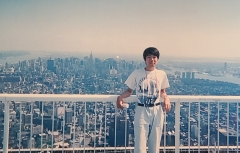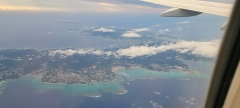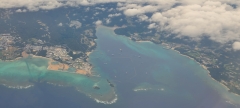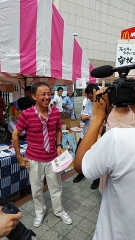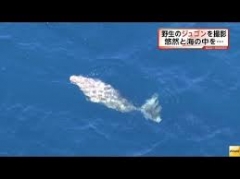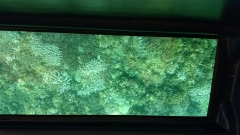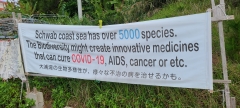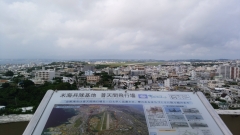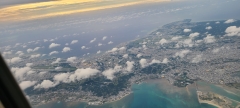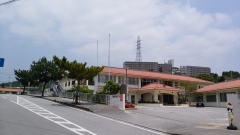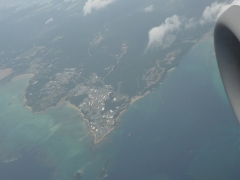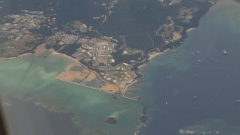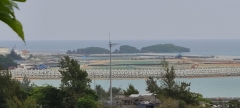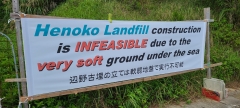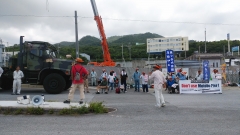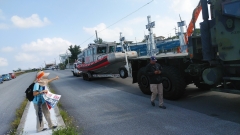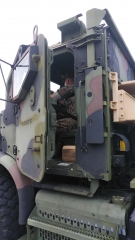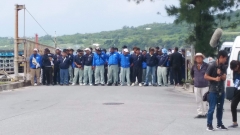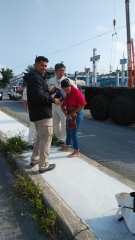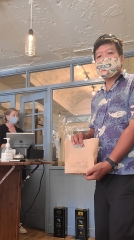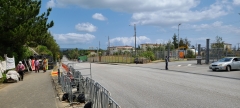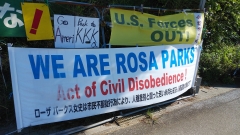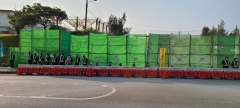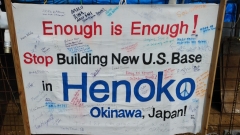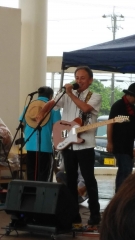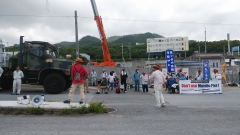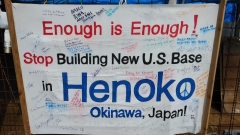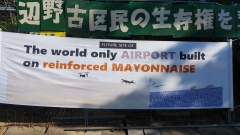16 September 2021
911 has become a history
This month marked 20th anniversary of the terror attack to the World Trade Center in New York.
20 years ago I watched a news program on TV. Then suddenly the scene of airplane crash into the buildings were shown. An hour later the two building collapsed. Around 3000 people died. I truly tribute to the victims.
I remember I was on the World Trade Center rooftop 8 years before that terror attack when I was a college student in US.
It was like being on top of the world.
Now since that day the place is known as "Ground Zero." Where I used to stand has become a memorial site.
Then the fightback war in Afghanistan started followed by the war in Iraq for ambiguos reasons. 10 years ago, Osama Binladin was killed.
Last month US withdrew troops from Afghanistan after Taliban regime who harbored Osama Binladin and his terror group Al Qaeda took over the country's capital. 13 US service persons were killed by the terror attack just a few days before the pullout.
This incident gave the world impression that the US was defeated by Taliban and Al Qaeda. Surely it never really meant US lost in the global war on terror. The fight still continues over the horizon.
But what has been happening over these 20 years?
My image of America has gone bad since 911. Many civilian casualties was numbered. But most Americans justified military actions that could cost civilian death except people like Peaceful Tomorrows. A liberal and kind American friend I knew turned very aggressive and supported the war. It seemed the world I knew flipped up side down.
These days I am disgusted with America.
Especially because of US military issue, as this post describes.
Dear US Government re: request for terminating USMC new base construction in Okinawa, Japan
The US military destroys Japan's precious environment and is undermining Japan's national sovereignty.
In fact, America itself turned very ugly nation as the former President Trump symbolised such movement. The bottom line is America is white and Christian nation. Other than white and Christian means the second class citizen. That is why Asians became target for COVID-19 related hate-crimes.
Just right before US military pullout of Afghanistan, US did drone strike on what they claimed, the terrorist who instructed the attack on the site where 13 US soldiers were killed. But now it was suspected to be civilian residence who had no connection with the terror and caused child victims according to this news report.
America is giving bad things to the world although it still leads the world in economy and politics.
But it is no longer the moral leader. To me, America is no longer a friend, though not an enemy. I became more isolationist or feel closer to other nations.
The whole world is changing. The power balance is changing as well as the values.
Good Bye, America and the world I knew before 911! I am seeing the new world and new values.
22:50 Posted in Politics, US-Japan relationship, USA issues | Permalink | Comments (0) | Tags: terror, 911, history, world trade center
31 May 2021
Dear US Government re: request for terminating USMC new base construction in Okinawa, Japan
Dear US President Biden, Congressmembers, Senators and other decision makers of the issue,
My name is MASAGATA, a Japanese man living in Tokyo. I used to study at San Francisco State University, where I majored in International Relations. I am now working as a translator using the English knowledge I acquired in the US.
I am writing this letter to urge US government to terminate current ongoing landfill construction to build a new US Marine base runways at Camp Schwab, Henoko, Nago city, Okinawa prefecture.
This is the modified version of the letter I sent US Congress members and Senators in a joint Armed Forces Committee which was finalizing National Defense Authority Act two years ago. I added updated information to it.
The below is main points I would like to describe in this letter.
- What has been going on up until now
- Locals oppose the new base construction
- Wildlife and ecosystem are threatened
- Technically, physically infeasible project
- This construction might deteriorate friendship between the two nations
- Your Servicemen & women and American residents are facing hostility in Okinawa
Some of the below photos can be enlarged by clicking on them.
----------------------------------------------
- What has been going on up until now
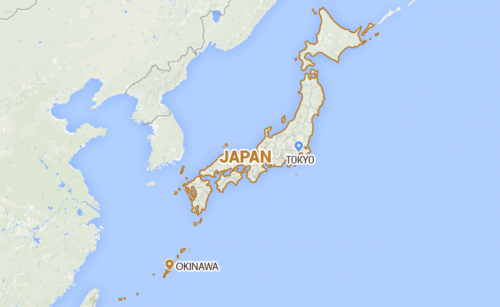
Okinawa is chain of islands and southernmost prefecture below mainland Japan. The climate is subtropical and blessed with abundance of nature surrounded by coral reef. It is 3 hour-flight from Tokyo and very famous for marine leisure tourism just like Hawaii. In fact Okinawa went through the same path as Hawaii did.
Until the end of 19th century it was an independent kingdom but annexed by mainland force. In 1945 US forces occupied Okinawa and then Okinawa has been occupied until 1972, which was 20 years after the mainland Japan regained sovereignty and was the only place that experienced ground battles within Japan, causing 200,000 civilian casualties during WW II.
In 1996 both the American and Japanese governments agreed to relocate US Marine Corp. Futenma base in Ginowan City, Okinawa to Camp Schwab to get away from the densely populated area around Futenma, together with some of Futenma capabilities to relocate to Guam in the Pacific.
Camp Schwab is on the coastline of Okinawa island, in an area called Henoko.
The relocation plan includes reclamation of the sea to build a new base that consists of two runways and ports expanding existing facility. Schwab is located in between Henoko coast (left) and Oura Bay (right) as you see in the photo taken on May 20, 2021.
- Locals oppose the new base construction
Since the plan was announced, locals and activists from all over Japan have been protesting the new base construction by holding referendums, supporting candidates of mayoral and gubernatorial election, and municipal assembly members, who oppose the construction, as well as sit-in demonstration at the gate of Camp Schwab and kayaking at the landfilling site as civil disobedience act. Until now, tens of protesters were arrested and injured by police at the gate or coast of Camp Schwab.,
In September2018, Okinawans elected Denny Tamaki as a Governor of Okinawa after death of then governor Takeshi Onaga, who was opposed to the new base construction. Mr. Tamaki succeeded the will of Onaga and won the election. He was formerly a Diet, Japan’s National Assembly member.
His father was a US Marine serviceman stationed in Okinawa and mother was Okinawan native. It was first time in Japan that a racially mixed man was elected as governor of one Prefecture. He proved that Japan is no longer homogeneous population and the nation can tolerate diversity.
In February, 2019, Okinawa held referendum to ask whether locals approve or oppose the landfill construction at Henoko sea for the construction of a new United States Marine Corps base. The outcome was that 71% of voters oppose the new base construction.
The main reason to oppose the relocation of Futenma is the relocation takes place within Okinawa island, not outside of Okinawa prefecture, which cannot reduce burden on Okinawans' lives.
In April and July of the same year Diet member elections were held and in Okinawa constituency, candidates who announced opposition to the new base construction won in both times.
That proves local opposition is very obvious and hasn’t changed for decades.
- Wildlife and ecosystem are threatened
Many environmental activists also oppose the plan because of the abundance of forms of wildlife that are unique to the area around Camp Schwab.
This photo is of a dugong, an endangered marine mammal that eats grasses in the sea. It is just ridiculous that the nation that protests Japan’s whaling in the Antarctic Sea – and even dolphin hunting in Taiji, Wakayama Prefecture that ex-US Ambassador to Japan, Caroline Kennedy was eager to protest – is helping to threaten another marine mammals that live in Japan.
In Oura Bay, the world’s largest, oldest and northernmost blue coral lives and has continued to grow for 3000 years.
Many new species are discovered in the bay recently. A lot more may be still undiscovered. It is estimated more than 5600 species exist in the Henoko and Oura bay area.
Great biodiversity for humanity lies in the sea.
US Marine Environment Protection Organization, Mission Blue designated the area as one of “Hope Spots.”
https://mission-blue.org/2019/10/japans-first-hope-spot-h...
On Henoko coast, the sea is now enclosed and being reclaimed and dugongs and other creatures’ lives are now threatened. Dugongs’ sea grass is found in the current reclaiming area and some of untouched planned areas. They are losing their feeding place.
As for blue coral, reclaimed space can change the sea current and might adversely affect life of the coral. Then what will happen is that your nation will be accused of helping to diminish such wonderful and rare creatures.
Actually, the Japanese Ministry of Defense carried out an environmental assessment in which it was claimed that there were no dugongs in the sea. But the environmental organizations such as WWF and The Nature Conservation Society of Japan claim that the MoD’s assessment was wrong and the organizations’ own research found clear traces confirming the existence of dugongs. Later, Okinawa’s local newspaper revealed the news that the MoD was aware of the finding but had covered it up.
Because of these facts, the petition to the White House to halt landfilling of the sea was launched in 2018.
https://petitions.whitehouse.gov/petition/stop-landfill-henoko-oura-bay-until-referendum-can-be-held-okinawa
(Stop the landfill of Henoko / Oura Bay until a referendum can be held in Okinawa Created by R.K. on December 08, 2018)
More than 200000 signatures were collected in two months.
The petition campaign was led by a famous fashion model and TV personality, Rola (Mixed race woman between Japanese and Bangladesh), who posted the petition campaign on her Instagram page. She was an environmental activist.
- Technically, physically infeasible project
There are technical issues revealing infeasibility of the construction project as follows.
- Active faults are found down below planned construction site of runways. If that is the case in California, the project wouldn’t be permitted.
- Around planned construction site of runways there are buildings higher than US military aviation standard, flying helicopters or ospreys there might cause collision with these buildings, similar situation to Futenma Air Base in Ginowan city. (The below photo is Futenma base and its surrounding area from observatory site in the city.)
(Below photo is Futenma Base on the left and Kadena Air Base on the right.)
The buildings include school and its dormitory at which young students attend classes or reside. No plan of relocation is announced although a power transmission tower next to the building was already planned to relocate from that site. (The below photo is a local town next to Camp Schwab.)
- Geological survey conducted in the sea to landfill indicates sea ground is too soft to pile soil on like mayonnaise, which consumes more budget and time to landfill so the construction period should be much longer than expected like 20 years from now.
The below photo was taken in January 2018.
The projection map of Henoko coast and Oura Bay reclamation to build two runways on relocation site of Futenma.
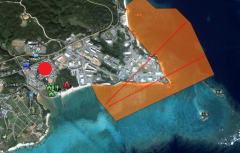
Currently Henoko side, left side of the map has been landfilled.
Although the landfilling already started in Heneoko sea side area (left side), but at this point only one third of all the planned area is landfilled and even the one third is not fully landfilled yet. It was filled up to 3 meters high but still requires another 4 meters, which would take at least another 3 years and the other two thirds on Oura bay side (right side of the photo) have not started at all due to the technical issues related to very soft ground under the sea. Henoko side is shallow but Oura bay side is very deep.
Even after 2 years and half passed since landfilling started, only 6 % of total amount of soil was used.
The below photo is Henoko coast side landfill. Only 3 meter of planned 7 meter is filled up.
Initially that bigger Oura area, was supposed to be landfilled first but it was found even piers cannot withstand minimum level of earthquake.
Even US GAO (Government Accountability Office) recently and the think tank CSIS recently reported Henoko landfill construction is difficult to implement due to the technical issues.
It is possible that the project is cancelled halfway for some reason but irreversible damages would be left together with grudge from locals. Some portion of the budget for relocation of Marine Corp. to Camp Schwab and Guam is spared by US Government. That means this project wastes not only Japanese tax payers’ money but Americans as well.
It has been done for the interests of the few. The few, you might know, are certain businesses and government people who want some gains from the project. One of major contractors of the project is Taisei Kensetsu Corporation, where third son of current Prime Minister, Suga, works.
- This construction might deteriorate friendship between the two nations
You might say this issue is something to be handled by the Japanese government, and that it is not the responsibility of the US military. But that sounds very hypocritical. The US military is the one that uses the facility and up until now involved in designing of new runways and annexed facilities. The US government can cancel that project and find another relocation site outside Okinawa.
If the US continues to attribute this to the Japanese government, it is just like what Japanese conservative politicians say when it comes to the “Comfort Women” issue: “The Japanese Imperial Army was not responsible for kidnapping women in Asia for sexual slavery for soldiers during the war period in the early 20th century, it was what outsourced local brothels did.” The US Congress disavowed such argument and made a resolution to demand that the Japanese government apologize for former comfort women in 2007.
Doubts about US commitment to Japan’s defense
In fact, the US military presence in Okinawa and even nationwide is becoming nothing but troublesome. More of us know that the US military presence no longer functions as defense or deterrence like in the Cold War era. China is said to be a new threat but we know that US-China relations have become more vital for your nation since China owns more US treasury bonds and buys more US goods than Japan does. China has become a larger economy than Japan these days.
We can easily predict that the US would not help Japan even if China and Japan became involved in a dispute for some reason such as the territorial right to the Senkaku islands located in between sea border of Japan and China. The US cannot send troops to assist Japan fighting against the Chinese military because such action might cause great losses for your national interests. China also played a big role in negotiating with North Korea. China is vital for US foreign policy.
Military experts and even former US military officials say that the biggest reason that the US military forces stay in Japan is to cut cost of their own because Japan provides host nation support fund, which we call “Sympathy Budget” that accounts for more than 70% of total expense for the US bases in Japan. There are more than 130 facilities of US military in Japan. Most of the troops are stationed at 30 facilities in Okinawa prefecture that accounts for 1 % of total of Japan’s territory and population.
During Vietnam War, it was a transit point to transport soldiers, military weapons and equipment. Now there is no strategic importance. How many of US congressmen and senators knows Okinawa? Is this place worth keeping bases in?
Deploying your military so much in our country, especially Okinawa is just causing growing distrust against your country. I believe the Okinawa issue presents the perfect timing for your nation to rethink its military deployment in Japan in order to improve the relationship between the two nations. Constructing a base on reclaimed land in the Henoko sea is the worst possible idea.
The Image of America is getting worse lately
US military presence functions to apply American influence on our nation. Yes, it did work that way but you really have to know this may be working negatively. The image of your country itself is no longer positive like in the past. In other words, the US is no longer a powerful land of dreams, nor is it any longer a role model for us.
One example of this can be seen in a recent best-selling book on your country’s poverty issue. The title of the book is “Rupo Hinkontaikoku America” (Report, Poverty Superpower, America). It was written by a Japanese journalist, TSUTSUMI Mika. The book describes how Americans are struggling with poverty in a plutonomy society and explains how Japan should not follow suit.
We know that a lot of young Marine troops stationed there come from poor families that cannot afford college education and have problems like domestic violence. They join the Marines by system, so called, Poverty Draft. That is why they cause troubles with Okinawa locals.
In addition, four years of Trump administration proved disparity among your nation. Although Trump lost in last year’s presidential election. 74 million Americans voted him, record number among sitting presidents. His comments during the administration delivered very negative images of America to Japanese citizens. We expect someone like him would be reelected in near future, which is disappointing me, who learnt decency of America.
- Your Servicemen & women and American residents are facing hostility in Okinawa
In September 2019, US Marines faced apparent resistance from locals and activists. citizens blocked port entry of US Marine vehicles carrying a boat for training. The port was located in Motobu town, 30 minute drive from Henoko and the boat was supposed to be shipped to nearby island.
Young military servicemen and women had to hear yelling from protesters and waited inside the vehicle for hours without air condition. The Marine vehicle was trying to enter the port to unload the boat to use for training on the sea.
Even port workers were standing at the entrance as human shield. The workers oppose military use of the port because they want to allow only civilian use. After 10 hours of sit-in protest, Marine vehicle with the boat on a trailer had to leave the port to go back to Camp Schwab.
I was there joining the sit-ins and talked with servicemen and woman. They seemed very unhappy having such conflicts. They should feel like being deployed on enemy line, not in allied nation.
Just recently I met an American woman who manages a cheese shop “Little Greek Kitchen” at Plaza House Shopping Center in Okinawa. She was interviewed by Japan’s national television station NHK, and said that she did not want to be recognized as US military affiliated because reputation of US military has been very bad. She welcomes anyone regardless of nationality or what organization they belong to.
At the Camp Schwab gate, every day they have to see the protesters’ civil disobedience act and in many times being yelled at and called names. They never feel welcome. I do not think they feel honored to serve Marine Corp. as long as they are stationed in Okinawa.
Just next to Camp Schwab personnel entry gate is construction vehicle gate where every weekday, protestors sit-in to block the construction vehicles so that less vehicles could get in and delay the construction.
Do you think this situation creates healthy relationship among US, Japan and Okinawa? Proceeding of such unnecessary and infeasible construction are just making things worse. It should be halted immediately for the friendship or for the time being, construction must be stopped for the review.
Current Japanese government is willing to continue this but the opposing parties announced the termination of the construction if they regain the governance of Japan since the local protest is growing bigger than ever and the construction is found to be infeasible. Even a former Defense Minister, Nakatani in the current ruling party claimed it should be stopped.
Moreover, COVID-19 pandemic delays the construction schedule in addition to the local resistance. Last year the construction was halted for 2 months because the workers got infected. Camp Schwab service personnels got infected as well. More budget for the pandemic relief is required. We will soon meet with the serious budget shortage and chaos due to the pandemic.
As for practical solutions, I recommend your organization to review a proposal by a private think tank, The New Diplomacy Initiatives (http://www.nd-initiative.org/en/), which suggests removal of US Marine bases from Okinawa but instead, establishing joint Humanitarian Assistance/Disaster Relief (HA/DR) Corp. with Japan’s Self-Defense Force equipped with high speed transport vessels, which rotates around East Asia. It is cost-effective and able to contribute to security of the region more realistically.
Sincerely,
Please Stay Safe!
P.S.
Permit me for writing some awkward or grammatically incorrect phrases since I am not a native speaker of English.
18:55 Posted in Ecology, Japan News, Politics, US-Japan relationship | Permalink | Comments (0) | Tags: okinawa, military
21 October 2019
Dear US Congressmembers and Senator Re:Okinawa USMC issue
Rep. Don Bacon, Rep. Ruben Gallego, Rep. Seth Moulton, Rep. Jack Bergman, Rep. Steve Womack, and Senator Marsha Blackburn, who met Mr. Denny Tamaki, governor of Okinawa Prefecture, Japan and discussed Okinawa USMC new base construction issue in third week of October 2019
My name is MASAGATA, a Japanese man living in Tokyo. I've been engaged in this issue as a citizen. I used to study at San Francisco State University, where I majored in International Relations. I am now working as a translator using the English knowledge I acquired in the US.
I am writing this letter to urge Congressmembers and Senator to include the item that US military review relocation of Marine Corp. in Okinawa to Guam in currently finalizing National Defense Authority Act in a joint committee of the US Congress. The Senate passed the legislation that included the item but Congress did not.
I am very sure that you are aware of this issue since you are one of members in a joint Armed Services committee handling this matter and met Mr. Denny Tamaki, Governor of Okinawa Prefecture in Japan.
Last year and five years ago, I wrote to US Ambassadors to Japan regarding the same issue. This is modified version of the letter with update information.
The below is main points I would like to describe in this letter.
1. What has been going on up until now
2. Locals strongly oppose the new base construction
3. Precious wildlife and ecosystem are threatened
4. Technically, physically infeasible project
5. This construction might deteriorate friendship between the two nations
6. Your Servicemen and women are living with hostility in Okinawa
1. What has been going on up until now
Okinawa is chain of islands and southernmost prefecture below mainland Japan. The climate is subtropical and blessed with abundance of nature surrounded by coral reef. It is 3 hour-flight from Tokyo and very famous for marine leisure tourism just like Hawaii for Americans. In fact Okinawa went through the same path as Hawaii did. Until the end of 19th century it was an independent kingdom but annexed by mainland force. In 1945 US forces occupied Okinawa and then Okinawa has been occupied until 1972, which is 20 years after mainland Japan regained sovereignty and was the only place that experienced ground battles within Japan, causing 200,000 civilian casualties during WW II.
In 1996 both the American and Japanese governments agreed to relocate US Marine Corp. Futenma base in Ginowan City to Camp Schwab to get away from the densely populated area around Futenma. Camp Schwab is on the coastline of the island, in an area called Henoko. The relocation plan includes reclamation of the sea to build a new base that consists of two runways and ports expanding existing facility. Schwab is located in between Henoko coast (left) and Oura Bay (right) as you see in the photo. (Taken in January 2018)
2. Locals strongly oppose the new base construction
Since the plan was announced, locals and activists from all over Japan have been protesting the new base construction by holding referendums, supporting candidates of mayoral and gubernatorial elections, and municipal assembly members, who oppose the construction, as well as sit-in demonstration at the gate of Camp Schwab and kayaking at the landfilling site as civil disobedience act. Until now, tens of protesters were arrested and injured by police at the gate or coast of Camp Schwab.
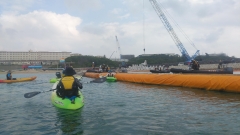
Last year’s September, Okinawans elected Denny Tamaki as a Governor of Okinawa after sudden death of then governor Takeshi Onaga, who was opposed to the new base construction. Mr. Tamaki succeeded the will of Onaga and won the election. He was formerly a Diet, Japan’s National Assembly member. His father was a US Marine serviceman stationed in Okinawa and mother was Okinawan native. It was first time in Japan that a mixed race man was elected as governor of one Prefecture. He proved that Japan is no longer homogeneous population and the nation can tolerate diversity.
(Photos were taken by me during gubernatorial election in September 2018)
This year’s February, Okinawa held referendum to ask whether locals approve or oppose the landfill work at Henoko Bay for the construction of a new United States Marine Corp base. The outcome was that 71% of voters oppose the new base construction.
In April and July of this year Diet member elections were held and in Okinawa constituency, candidates who announced opposition to the new base construction won in both times.
Therefore local opposition is very obvious and hasn’t changed for decades.
3. Precious wildlife and ecosystem are threatened
Many environmental activists also oppose the plan because of the abundance of forms of wildlife that are unique to the area around Camp Schwab.
This photo is of a dugong, an endangered marine mammal that eats grasses in the sea. It is just ridiculous that the nation that protests Japan’s whaling in the Antarctic Sea – and even dolphin hunting in Taiji, Wakayama Prefecture that former Ambassador Kennedy was eager to protest – is helping to threaten another marine mammals that live in Japan.
In Oura Bay, the world’s largest, oldest and northernmost blue coral lives and has continued to grow for 3000 years.
Many new species are discovered in the bay recently. A lot more may be still undiscovered.
On Henoko coast, the sea is enclosed and being reclaimed and dugongs and other creatures’ lives would be threatened. Dugongs’ sea grass is found in the reclaiming area. They will lose their feeding place. As for blue coral, reclaimed space would change the sea current and might adversely affect life of the coral. Then what will happen is that your nation will be accused of helping to diminish such wonderful and rare creatures.
Actually, the Japanese Ministry of Defense carried out an environmental assessment in which it was claimed that there were no dugongs in the sea. But the environmental organizations such as WWF and The Nature Conservation Society of Japan claim that the MoD’s assessment was wrong and the organizations’ own research found clear traces confirming the existence of dugongs. Recently, Okinawa’s local newspaper revealed the news that the MoD was aware of the finding but had covered it up.
Because of these facts, the petition to the White House to halt landfilling of the sea was launched last year.
https://petitions.whitehouse.gov/petition/stop-landfill-henoko-oura-bay-until-referendum-can-be-held-okinawa
(Stop the landfill of Henoko / Oura Bay until a referendum can be held in Okinawa Created by R.K. on December 08, 2018)
More than 200000 signatures were collected in two months.
The petition campaign was led by a famous fashion model and TV personality, Laura (Mixed race woman between Japanese and Bangladesh), who posted the petition campaign on her Instagram page. She was an environmental activist.
4. Technically, physically infeasible project
There are technical issues revealing infeasibility of the construction project as follows.
• Active faults are found down below planned construction site of runways. If that is the case in California, the project wouldn’t be permitted.
• Around planned construction site of runways there are buildings higher than US military aviation standard, flying helicopters or ospreys there might cause collision with these buildings, similar situation to Futenma Air Base in Ginowan city.
The buildings include school and its dormitory at which young students attend classes or reside. The school officials were not informed of this matter until recently. No plan of relocation is announced although a power transmission tower next to the building was already planned to relocate from that site.
• Geological survey conducted in the sea to landfill indicates sea ground is too soft to pile soil on like mayonnaise, which consumes more budget and time to landfill so the construction period should be much longer than expected like 20 years from now.
It is possible that the project is cancelled halfway for some reason but irreversible damages would be left together with grudge from locals. Some portion of the budget for relocation of Marine Corp. to Guam is spared by US Government. That means this project wastes not only Japanese tax payers’ money but Americans as well.
It has been done for the interests of the few. The few, you might know, are certain businesses and government people who want some gains from the project. One of major contractors of the project is Taisei Kensetsu Corporation, where son of current Cabinet Secretary, Mr Suga, works.
5. This construction might deteriorate friendship between the two nations
You might say this issue is something to be handled by the Japanese government, and that it is not the responsibility of the US military. But that sounds very hypocritical. The US military is the one that uses the facility and up until now involved in designing of new runways and annexed facilities. The US government can cancel that project and find another relocation site outside Okinawa. If the US continues to attribute this to the Japanese government, it is just like what Japanese conservative politicians say when it comes to the “Comfort Women” issue: “The Japanese Imperial Army was not responsible for kidnapping women in Asia for sexual slavery for soldiers during the war period in the early 20th century, it was what outsourced local brothels did.” The US Congress disavowed such argument and made a resolution to demand that the Japanese government apologize for former comfort women in 2007.
Doubts about US military committment to Japan's defense
In fact, the US military presence in Okinawa and even nationwide is becoming nothing but troublesome. More of us know that the US military presence no longer functions as defense or deterrence like in the Cold War era. China is said to be a new threat but we know that US-China relations have become more vital for your nation since China owns more US treasury bonds and buys more US goods than Japan does. China has become a larger economy than Japan these days.
Mr. Trump imposed sanction on China for trade issue recently but Japan is a prime target as well since Japan has run surplus on trade with US like Canada and Europe. Mr. Trump’s sanction tells how important and influential China has been for US economy.
We can easily predict that the US would not help Japan even if China and Japan became involved in a dispute for some reason such as the territorial right to the Senkaku islands located in between sea border of Japan and China. The US cannot send troops to assist Japan fighting against the Chinese military because such action might cause great losses for your national interests. China has many ways to sanction your nation as already did recently. China also played a big role in negotiating with North Korea. China is vital for US politics as well as economy.
Military experts and even former US military officials say that the biggest reason that the US military forces stay in Japan is to cut cost of their own because Japan provides host nation support fund, which we call “Sympathy Budget” that accounts for more than 70% of total expense for the US bases in Japan. There are more than 130 facilities of US military in Japan. Most of the troops are stationed at 30 facilities in Okinawa prefecture that accounts for 1 % of total of Japan’s territory and population.
During Vietnam War, it was a transit point to transport soldiers, military weapons and equipment. Now there is no strategic importance. How many of US congressmen and senators knows Okinawa? Is this place worth keeping bases in?
Deploying your military so much in our country, especially Okinawa is just causing growing distrust against your country. I believe the Okinawa issue presents the perfect timing for your nation to rethink its military deployment in Japan in order to improve the relationship between the two nations. Constructing a base on reclaimed land in the Henoko sea is the worst possible idea.
US military presence functions to apply American influence on our nation. Yes, it did work that way but you really have to know this may be working negatively. The image of your country itself is no longer positive like in the past. In other words, the US is no longer a powerful land of dreams, nor is it any longer a role model for us. One example of this can be seen in a recent best-selling book on your country’s poverty issue. The title of the book is “Rupo Hinkontaikoku America” (Report, Poverty Superpower, America). It was written by a Japanese journalist, TSUTSUMI Mika. The book describes how Americans are struggling with poverty in a plutonomy society and explains how Japan should not follow suit.
We know that a lot of young Marine troops stationed there come from poor families that cannot afford college education and have problems like domestic violence. They join the Marines by system, so called, Poverty Draft. That is why they cause troubles with Okinawa locals.
6. Your Servicemen and women are living with hostility
Just recently, US Marines faced apparent resistance from locals and activists. On September 17, 2019 citizens blocked civilian port entry of US Marine vehicles carrying a boat for training at Motobu Pier in Motobu town, 30 minutes drive from Camp Schwab.
Young military servicemen and women had to hear yelling from protesters and waited inside the vehicle for hours without air conditioner.

The Marine vehicle was trying to enter the port to unload the boat on its trailer for training on the sea.
Even port workers were standing at the entrance as human shield. The workers oppose military use of the port because they want to allow only civilian use. After 10 hours of sit-in protest from 7 AM, Marine vehicles had to leave the port with the boat on a trailer to get back to Camp Schwab.
I was there joining the sit-ins and talked with servicemen and woman. They seemed very unhappy doing their jobs. They should feel like being deployed on enemy line, not in an allied nation.
When I said "Traitor" to one of workers of Japan's Defense Department who corporated with Marines and then a servicewoman said "No, he is not" to me.
At the Camp Schwab gate, every day they have to see the protesters civil disobedience act and in many times being yelled at and called names. They never feel welcome. I do not think they feel being honored to serve Marine Corp. as long as they are stationed in Okinawa.
Do you think this situation creates healthier relationship among US, Japan and Okinawa? Proceeding of such unnecessary and infeasible construction are just making things worse. It should be halted immediately for the friendship or for the time being, construction must be temporarily stopped for the review.
As for practical solutions, I recommend your organization to review a proposal by a private think tank, The New Diplomacy Initiatives (http://www.nd-initiative.org/en/), which suggests removal of US Marine bases from Okinawa but instead, establishing joint Humanitarian Assistance/Disaster Relief (HA/DR) Corp. with Japan’s Self-Defense Force equipped with high speed transport vessels, which rotates around East Asia. It is cost-effective and able to contribute to security of the region more realistically.
Sincerely,
P.S.
Permit me for writing some awkward or grammatically incorrect phrases since I am not a native speaker of English.
01:14 Posted in Ecology, Japan News, Politics, US-Japan relationship, USA issues | Permalink | Comments (0) | Tags: military, okinawa
19 August 2018
Documentary “A Bold Peace”, why Costa Rica abolished its national army
Japanese pacifists sing praises for Costa Rica’s disarmament.
According to the documentary “A Bold Peace,” the nation abolished national army in 1948, the same period Japan announced current constitution which states disarmament.
Japan was actually forced to do so by US occupational force. But Costa Rica did that internally.
This was a way to counter US imperialism in the region. US used military forces of Central American nations to remove anti-America regimes by provoking coups.
In that sense having military is a huge risk for the small nation.
Even if the nation tries to counter US by arming itself as much as possible, it can never compete with America ‘s gigantic military force.
That was a strategy for them. Thing in common with Japan.
Because Japan officially does not have a military force, Japan has actually never sent combat forces to overseas since the end of Second World War, only supply or monitoring staff.
If we had one like South Korea, we might have gotten involved in Vietnam war and massacred civilians.
The common issue is how we deal with the US.
Conclusion of the film describes how US undermines peace, environment, social welfare and prosperity of the world although they often claim themselves to be the leader of free world.
Let’s think about how we deal with the US!
15:01 Posted in Film, Politics, US-Japan relationship, USA issues | Permalink | Comments (0) | Tags: history, documentary, military






